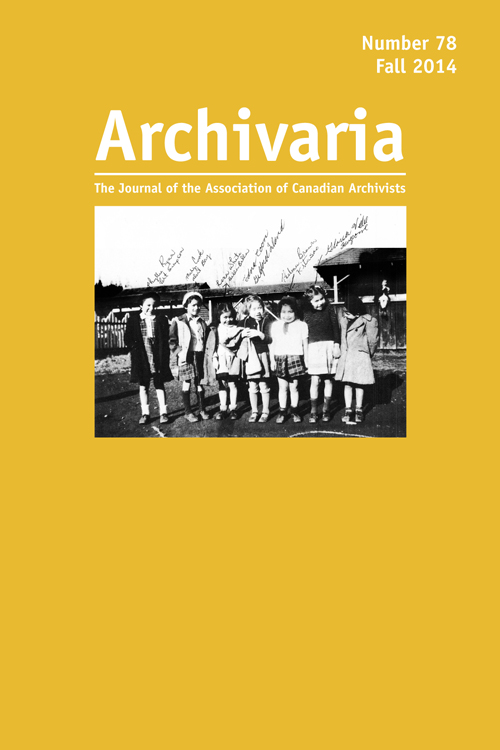Kicking Off the Women’s “Archives Party”: The World Center for Women’s Archives and the Foundations of Feminist Historiography and Women’s Archives
Abstract
Proposed in 1935 by feminist pacifist Rosika Schwimmer and dissolved only five years later, the World Center for Women’s Archives (WCWA) is now remembered as a mostly failed experiment. Current scholarship suggests that the organization’s sole long-term contribution was the preservation of women’s historical materials that would form the basis of more significant women’s collections. However, a more in-depth analysis reveals that, beyond acting as a repository, the WCWA was an innovator in the fields of women’s history and archives. The organization’s understanding of the power of the archive, including the role of the archive in shaping historical memory and the politics of exclusion that governed the building of an archival collection, had a profound influence on the Archives’ ideologies. In the quest to recover women’s history, the WCWA emerged as a counter-archive, employing alternative approaches to historical documentation and knowledge production in order to represent the female experience more widely. The guiding principles and practices of the WCWA can be seen as foundations of the feminist historiographical paradigm, the women’s archive movement, and archival scholarship more generally, particularly in relation to marginalized groups.
RÉSUMÉ
Le World Center for Women’s Archives (WCWA), proposé en 1935 par la féministe pacifiste Rosika Schwimmer et dissous seulement cinq ans plus tard, est perçu aujourd’hui comme une expérience presque entièrement ratée. Les écrits scientifiques courants suggèrent que la seule contribution à long terme de l’organisation était la conservation de matériel historique des femmes qui a éventuellement servi de base à des collections plus importantes. Cependant, une analyse plus approfondie révèle qu’au-delà de son rôle de centre de dépôt, le WCWA était une organisation innovatrice dans les domaines de l’histoire des femmes et des archives. Le fait que l’organisation reconnaissait le pouvoir des archives, y inclus le rôle des archives dans le façonnement de la mémoire historique et les politiques d’exclusion présidant à la création d’une collection d’archives, a eu une profonde influence sur les idéologies des centres d’archives. Dans sa quête de récupérer l’histoire des femmes, le WCWA en est ressorti comme sorte de « contre-archives », se servant d’approches alternatives à la documentation historique et à la production du savoir, dans le but de refléter l’expérience des femmes de façon plus large. Les principes et pratiques directeurs du WCWA peuvent être perçus comme ayant jeté les bases du paradigme historio-graphique féministe, du mouvement des archives des femmes et des études savantes en archivistique de façon générale, surtout vis-à-vis les groupes marginalisés.
Authors of manuscripts accepted for publication retain copyright in their work. They are required to sign the Agreement on Authors' Rights and Responsibilities that permits Archivaria to publish and disseminate the work in print and electronically. In the same agreement, authors are required to confirm that "the material submitted for publication in Archivaria, both in its paper and electronic versions, including reproductions of other works (e.g. photographs, maps, etc.) does not infringe upon any existing copyright." Authors of manuscripts accepted for publication retain copyright in their work and are able to publish their articles in institutional repositories or elsewhere as long as the piece is posted after its original appearance on archivaria.ca. Any reproduction within one year following the date of this agreement requires the permission of the General Editor.





